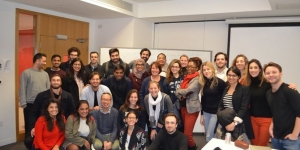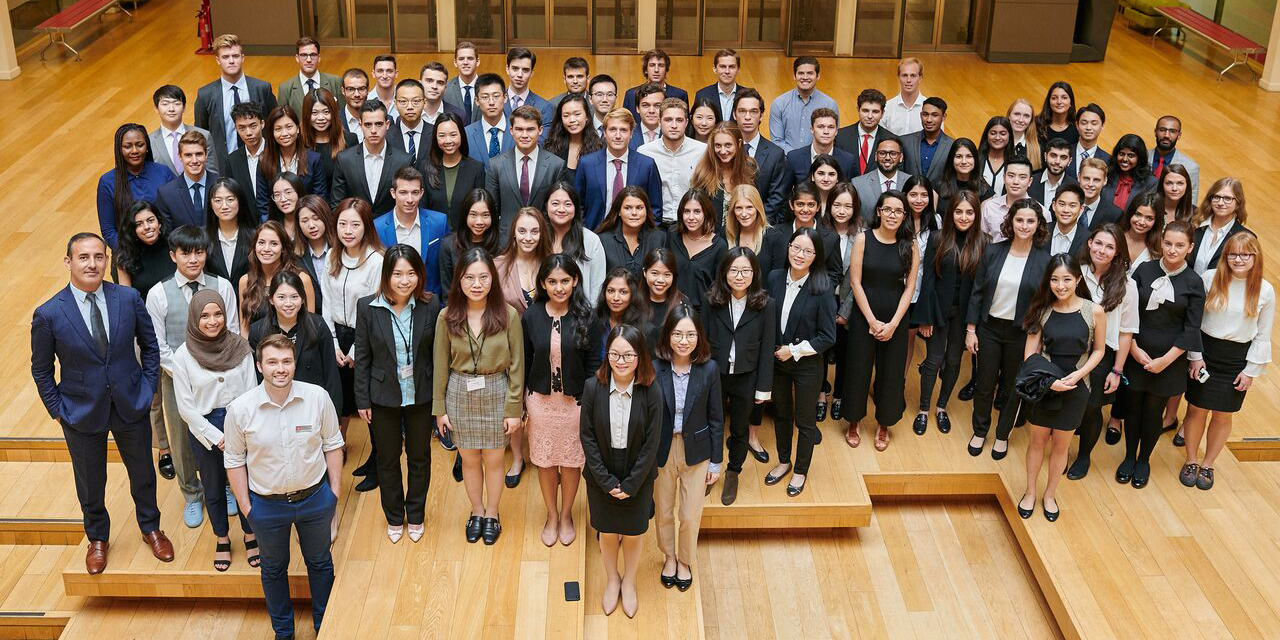Being an entrepreneur demands far more than just theoretical knowledge. So in order to benefit from their practical real-world experience, Dylan Itzikowitz and his peers on the MSc Social Innovation and Entrepreneurship programme brought together a diverse group of successful innovators from around the world. The result was Social Entrepreneurship 360°, a week-long workshop on all things entrepreneur.
‘Persistence, not patience is the virtue for entrepreneurs’.
And persistence is how the second Social Entrepreneurship 360° (SE360) went ahead on the snowiest day of the winter, as determined delegates fought the elements to reach the event.
SE360 is a series of three separate week-long workshops at LSE, funded by LSE’s Latin American and Caribbean Centre, the Innovation Co-Creation Lab and Santander Bank. Bringing together social entrepreneurs from all over the world, the speakers share knowledge accrued from their practical experiences, successes and failures, allowing LSE’s students to learn what it’s really like to be an entrepreneur.
We wanted SE360 to be collaborative. So we asked students who they’d like to see, encouraging the students to pitch who they most wanted to meet. These funds allowed our experienced and geographically diverse cohort to crowdsource the entrepreneurs from their own networks of practitioners across a variety of industries.
This is what led MSc student Nayla Attas to fly in her compatriot Gino Tubaro from Argentina to speak about his enterprise Atomic Lab, which creates 3D-printed decorated prosthetic limbs for amputee children free of charge. Another entrepreneur was Vincent Zimmer, speaking about his online university enterprise that allows refugees in Germany to study for qualifications from universities such as Harvard and MIT.
In addition to empowering students to utilise their own network of entrepreneurs, the event offered a refreshing insight into the process of turning an idea into sustainable enterprise. In Tubaro’s case, it was an inspiring tale of combining his passions for building things and helping the vulnerable. Zimmer, an LSE alumnus himself, candidly spoke about his process of hiring employees for his growing social enterprise, explaining why he did not focus too much on what and where prospective employees had studied.
Thanks to its funding, SE360’s week-long workshop filled a knowledge gap our cohort felt our programme was not offering: impact investing. To find the best person to fill this void, I leveraged my own network from volunteering at the University of Oxford’s Social Entrepreneurship Emerge Conference last autumn. This led me to invite their Entrepreneur in Residence, Aunnie Patton Powers, to lead her renowned day-long Impact Investing Bootcamp during SE360.
As a practitioner, Powers was able to explain the different mechanisms of impact investing. Giving an overview of the different impact investors currently working, she demonstrated how to prepare your enterprise to pitch to them for investment. Remarkably, this event saw 50+ people giving away their entire Sunday to learn! Hopefully this will serve as the start of a working relationship for years to come.
Theory is an important foundation for an entrepreneur’s tool-kit. Our professors share valuable transferable knowledge from the years spent achieving their PhD’s. But SE360 has created a platform to learn from people who have used these tools to create innovative and impactful social businesses. For most in the MSc in Social Innovation & Entrepreneurship, academia is not the goal in and of itself, but rather a stepping stone for our enterprises. Our persistent cohort is always seeking more and a purely theoretical understanding will not always suffice. SE360 empowers us to leverage our own networks and knowledge to further inspire and prepare us for the steps to come.
It’s a long road, but that’s why we’re persistent.
Learn more about our MSc Social Innovation and Entrepreneurship programme






